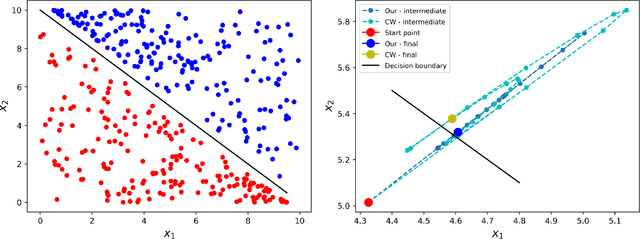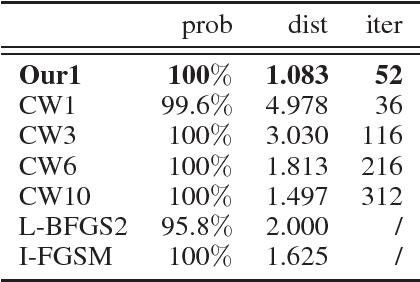Towards Leveraging the Information of Gradients in Optimization-based Adversarial Attack
Paper and Code
Dec 06, 2018



In recent years, deep neural networks demonstrated state-of-the-art performance in a large variety of tasks and therefore have been adopted in many applications. On the other hand, the latest studies revealed that neural networks are vulnerable to adversarial examples obtained by carefully adding small perturbation to legitimate samples. Based upon the observation, many attack methods were proposed. Among them, the optimization-based CW attack is the most powerful as the produced adversarial samples present much less distortion compared to other methods. The better attacking effect, however, comes at the cost of running more iterations and thus longer computation time to reach desirable results. In this work, we propose to leverage the information of gradients as a guidance during the search of adversaries. More specifically, directly incorporating the gradients into the perturbation can be regarded as a constraint added to the optimization process. We intuitively and empirically prove the rationality of our method in reducing the search space. Our experiments show that compared to the original CW attack, the proposed method requires fewer iterations towards adversarial samples, obtaining a higher success rate and resulting in smaller $\ell_2$ distortion.
 Add to Chrome
Add to Chrome Add to Firefox
Add to Firefox Add to Edge
Add to Edge